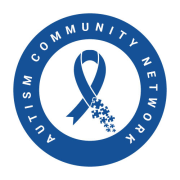

Author(s): Purboyo Solek, Eka Nurfitri, Taufan Prasetya, Anggia Farrah Rizqiamuti, Indra Sahril, A Burhan, Irma Rachmawati, Uni Gamayani, KusnandiRusmil, Irvan Afriandi
Background: Unlike other neurological disorders, there are no such supporting examinations that can definitively diagnose Autism Spectrum Disorder (ASD). The ASD presents a wide range of symptoms with variations that can indicate the severity of the condition, making its identification more complex and leading to potential misdiagnosis, missed diagnosis or delayed diagnosis.
Materials and methods: This study aims to ensure the precise diagnosis of ASD, distinguish it from other conditions, so it could provide comprehensive management to achieve optimal outcomes. This study is part of a larger research on ASD and its relationship with serotonin and brain-derived neurotrophic factors. Recruitment and diagnostic screening were conducted from May to June 2023 at the Neurobehavior Pediatric Center (NBPC), Bandung, based on the arrival of patients who registered directly at NBPC and through online registration. All patients were assessed with identical procedures, with a Childhood Autism Rating Scale (CARS) and through careful observation directly, followed by re-evaluation using video. The data will be presented in descriptive form.
Results: Of the 150 registered patients, 49 children were diagnosed other than autism. Dyslexia became the most common diagnosis after re-evaluation, present in 30.6% of the subjects. This was followed by intellectual disability (26.5%) and Expressive Language Disorders (ELD)+Risk of Dyslexia (RD) (22.4%). Additionally, there were other diagnoses such as ELD, ERLD, giftedness, Seckel syndrome, Cerebral Palsy (CP) and borderline Intelligence Quotient (IQ).
Conclusion: It requires extensive and repeated observational studies conducted over sufficient time, as well as a thorough understanding of neurodevelopmental disorders, executive function and theory of mind. Additionally, using multiple assessment tools is essential.